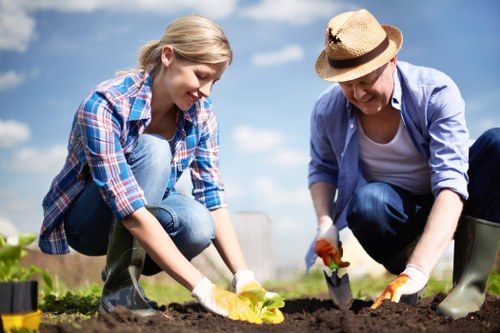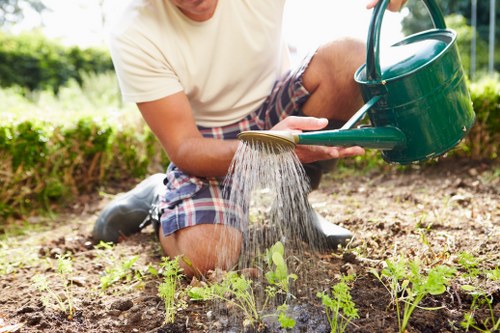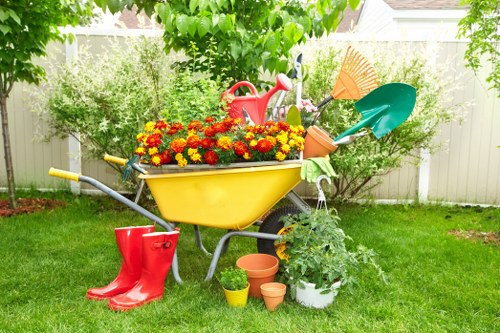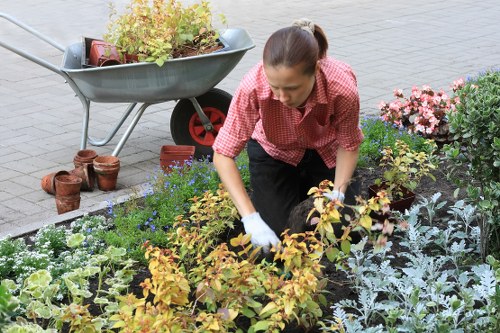Essential Gardeners Ware: Tools and Tips for a Thriving Garden

Gardening is a rewarding hobby that brings nature closer to us, providing not only beauty but also a sense of accomplishment. To cultivate a flourishing garden, having the right gardeners ware is crucial. Whether you’re a beginner or an experienced gardener, the right tools and accessories can make all the difference.
In this article, we’ll explore the essential gardeners ware you need to maintain and enhance your garden. From hand tools to advanced equipment, we’ll cover everything that can help you achieve garden success. We’ll also delve into the best local areas around Ware where you can find these tools and gather gardening inspiration.
Understanding the basics of gardeners ware will empower you to create and sustain a garden that thrives. Let’s dive into the must-have tools and accessories every gardener should consider.
Must-Have Garden Tools

Having the right tools is the foundation of effective gardening. Here are some essential garden tools that every gardener should have:
- Hand Trowel: Perfect for digging small holes, transplanting seedlings, and scooping soil.
- Pruning Shears: Essential for trimming and shaping plants, as well as removing dead or diseased branches.
- Garden Fork: Ideal for turning soil, aerating the ground, and removing weeds.
These basic tools are versatile and can handle a variety of gardening tasks, making them indispensable for any gardener.
Advanced Gardening Equipment

For those looking to take their gardening to the next level, advanced equipment can greatly enhance productivity and efficiency. Some key pieces include:
- Power Tillers: Help in preparing large garden beds by breaking up tough soil.
- Garden Tractors: Ideal for larger gardens, assisting with mowing, tilling, and other heavy-duty tasks.
- Drip Irrigation Systems: Ensure consistent watering, conserving water and promoting healthy plant growth.
Investing in these advanced tools can save time and effort, allowing you to focus more on the creative aspects of gardening.
Garden Accessories for a Beautiful Garden

Beyond tools, several accessories can enhance both the functionality and aesthetics of your garden:
- Compost Bins: Facilitate recycling of garden waste into nutrient-rich compost.
- Plant Supports: Help in growing plants upright, preventing breakage and promoting better growth.
- Garden Gloves: Protect your hands from dirt, thorns, and other potential hazards.
These accessories not only make gardening easier but also contribute to maintaining a tidy and organized garden space.
Choosing the Right Gardeners Ware

Selecting the appropriate gardeners ware can significantly impact your gardening experience. Consider the following factors when choosing your tools and equipment:
- Quality: Invest in durable tools that will last for years.
- Ergonomics: Choose tools that are comfortable to use, reducing strain on your hands and back.
- Functionality: Ensure the tools meet your specific gardening needs.
By carefully selecting your gardeners ware, you can enhance your gardening efficiency and enjoy a more pleasant gardening experience.
Maintenance of Garden Tools
Proper maintenance of your garden tools ensures their longevity and performance. Here are some maintenance tips:
- Cleaning: Remove dirt and debris after each use to prevent rust and deterioration.
- Sharpening: Regularly sharpen blades of tools like pruners and shears for effective cutting.
- Storage: Store tools in a dry place to avoid moisture damage.
Regular maintenance not only prolongs the life of your tools but also ensures they work efficiently when you need them most.
Local Gardeners Ware Shops Near Ware
If you’re located near Ware, there are several local shops where you can find quality gardeners ware:
- Ware Garden Supplies: Offering a wide range of tools and accessories to meet all your gardening needs.
- Green Thumb Nursery: Known for its excellent selection of plants and garden tools.
- Bloom & Grow: Specializes in eco-friendly gardening products.
- Garden Essentials Shop: Provides both basic and advanced gardening equipment.
Visiting these local stores allows you to see the products firsthand and receive expert advice tailored to your gardening requirements.
Gardening Tips for Beginners
Starting a garden can be overwhelming, but with the right tools and knowledge, you can create a thriving space. Here are some beginner tips:
- Start Small: Begin with a manageable garden size to avoid feeling overwhelmed.
- Choose the Right Plants: Select plants that are suitable for your climate and soil type.
- Regular Watering: Ensure your plants receive adequate water, especially during dry spells.
These simple tips can help you build a strong foundation for a successful gardening journey.
Sustainable Gardening Practices
Adopting sustainable practices in your gardening routine not only benefits the environment but also enhances the health of your garden:
- Composting: Recycle organic waste into nutrient-rich compost for your plants.
- Rainwater Harvesting: Collect and use rainwater for irrigation, conserving water resources.
- Natural Pest Control: Use organic methods to manage pests, promoting a healthier ecosystem.
Implementing these practices ensures a sustainable and eco-friendly garden that thrives year after year.
Local Areas Near Ware for Garden Enthusiasts
Ware is surrounded by several charming areas that are perfect for garden enthusiasts. Here are some nearby locations you might want to explore:
- Roebuck: Just a short drive from Ware, Roebuck offers beautiful public gardens and landscaping stores.
- Hertford: Known for its extensive parks and garden centers, Hertford is a haven for gardeners.
- St Albans: Home to the renowned Verulamium Park, St Albans is perfect for leisurely garden walks and inspiration.
- Stevenage: Offers a variety of garden nurseries and tool shops to cater to all gardening needs.
- Bishop's Stortford: Features several botanical gardens and extensive plant selections.
- Welwyn Garden City: Known for its planned gardens and community gardening projects.
- Hatfield: Offers historical gardens and modern gardening supply stores.
- Cheshunt: A great place for finding unique gardening accessories and local produce.
- Harpenden: Home to picturesque gardens and high-quality gardening services.
- Welwyn: Features excellent garden centers and eco-friendly gardening options.
Exploring these areas can provide you with new ideas, quality gardeners ware, and a sense of community with other garden enthusiasts.
Conclusion
Equipping yourself with the right gardeners ware is essential for creating and maintaining a beautiful and thriving garden. From basic hand tools to advanced equipment and sustainable practices, having the right resources can transform your gardening experience.
Additionally, taking advantage of the local areas around Ware ensures you have access to quality products and a supportive gardening community. Whether you’re just starting out or looking to enhance your gardening skills, investing in the right tools and knowledge will lead to a fulfilling and successful gardening journey.
Frequently Asked Questions

1. What are the basic tools every gardener should have?
Every gardener should have a hand trowel, pruning shears, a garden fork, a spade, and a watering can. These tools cover most of the basic gardening tasks.
2. How often should I maintain my garden tools?
It’s recommended to clean your tools after each use, sharpen blades regularly, and store them in a dry place to prevent rust and damage.
3. Where can I buy quality gardeners ware near Ware?
You can purchase quality gardeners ware at local shops like Ware Garden Supplies, Green Thumb Nursery, Bloom & Grow, Garden Essentials Shop, and more in nearby areas such as Hertford and St Albans.
4. What are some sustainable gardening practices I can adopt?
Some sustainable practices include composting organic waste, harvesting rainwater for irrigation, using natural pest control methods, and selecting native plants that require less water and maintenance.
5. How can I choose the right plants for my garden?
Consider your local climate, soil type, sunlight availability, and the specific needs of each plant. It’s also helpful to start with plants that are known to thrive in your region.